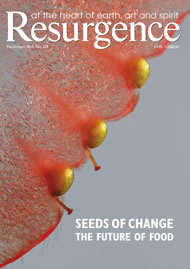Whilst revelations about the Blair/Bush unholy alliance continue to spill out into the public domain, Richard Seymour’s obsessively researched, impressive first book holds its place as the most authoritative historical analysis of its kind.
Seymour makes the book’s mission clear right from the start: “to explain a current of irrational thought that supports military occupation and murder in the name of virtue and decency”. He does this by unpacking over 300 years of history – from the Glorious Revolution of 1688 to Operation Freedom Iraq in 2003.
Right at the heart of The Liberal Defence of Murder is the US invasion of Iraq, a war which to date has killed over one million Iraqis. According to Seymour, this is not an isolated event, but instead is crucially the latest manifestation of the continuing struggle for meaning in our notions of liberalism and civilisation, stretching from John Locke and Alexis de Tocqueville and the forging of Europe, America and the nation-state, right up to the present day.
Seymour examines this sweep of history by tackling some of the most influential figures of our time, showing how thinkers from the left and right have become conflated by what he considers is American imperialism’s unimpeded march.
Take for example Seymour’s analysis of the rise of the contemporary pro-war ‘left’. Following the collapse of the Soviet Union in the 1990s, a number of prominent thinkers went from the left to the right, becoming close to Washington and helping formulate the policies leading to the War on Terror by ‘humanitarian military interventions’. Seymour cites people such as Kanan Makiya, one of the chief architects of the US invasion and occupation of Iraq, and the French philosopher/TV personality Bernard Henri-Lévy, and roundly disembowels them. He also traces the journey of public intellectuals and the left-wing intelligentsia, such as Michael Ignatieff, Nick Cohen and Martin Amis, in supporting the neo-conservatives’ dreams of invasion – all in the name of democracy.
Seymour is absolutely unremitting in casting all these thinkers as the people who enabled the ‘neo-con dream’ to come true and keep imperialism alive: “Imperialism is not a distant relic, but a living reality, and the moralisation of the means of violence has been the task of liberal and progressive intellectuals since they first competed with clerics for moral authority.”
It is a big claim, and one which has its roots very heavily in the origins of America and its history. America’s imperialism, he suggests, is encoded in its DNA, ever since it was founded as a breakaway nation, based on the Pilgrim Fathers and separatist religion, with a national history which has included slavery, subjugation of native peoples, and capitalism – itself a form of slavery – class rule and domination based on property rights.
Seymour also makes some sensational new discoveries. He uncovers the man he claims was the first neo-conservative – one of the outstanding socialist intellectuals of his time, John Spargo, who migrated from Britain to the US in 1901. Spargo argued that war conditions would be conducive to increasing industrial and political democracy, and became a leading authority of the political right, even aligning himself with Mussolini. He swept leading figures of the African-American left, such as Du Bois, into supporting war on the grounds that it would transform American society for the better.
If there are criticisms of The Liberal Defence of Murder, one is to do with the polemical style and tone. Seymour can be as bombastic and uncompromising as the neo-conservatives he condemns, and, like them, he refuses to show any nuance or light and shade in his arguments. The other main flaw is one on which the whole book rests: that any military intervention is morally unacceptable. Whilst this is idealistically irrefutable, Seymour in particular skirts around the Second World War’s status as the ‘just war’ that led to the birth of international human rights and the arguments for humanitarian intervention. In short, are there times when military intervention is justified and when not every use of force justifies a charge of murder? These are questions Seymour refuses to entertain. Instead he says people should be allowed to find their own solutions to genocide and conflict. Think of Rwanda, and the current conflicts in Congo and Uganda, and, in my opinion, this thinking is blown wide open.
Nevertheless, The Liberal Defence of Murder marks the debut of a significant left-wing historian who displays a welcome critical engagement, meaningful intellectualism and unabashed factual analysis.






